Description
ABSTRACT
An Overview of International Investment Agreements in the Context of China-Africa Relations and the Role of ICSID
Dr. Olumide Obayemi*
With growing African economies following stable institutionalised democracies and the expansion of Foreign Direct Investment (FDI), especially Chinese FDI, this paper critiques and examines the role of the International Centre for Settlement of Investment Disputes (ICSID) in the interpretation and application of the applicable international investment rules that are meant to protect foreign investor’s interests, both under Customary International Law and International Investment Treaties/Agreements, with special emphasis on the contemporary international investment contractual terms as contained in most China-Africa Bilateral Investments Treaties (BITs). It concludes with a comparative assessment of ICSID-based and non-ICSID-based international investment arbitrations and attempts to highlight salient developments in the fields of international investment and ICSID arbitration towards providing a robust guidance for Nigerian stakeholders.
INTRODUCTION
The principle of respect for private property rights forms part of generally accepted customary international law,1 as well as international investment agreements/treaties. Thus, international arbitral decisions consistently make specific references to respect for private property as a principle of customary international law.2 Starting from the Case Concerning Certain German Interests in Polish Upper Silesia3 involving the seizure of a factory by Poland and The Oscar Chinn Case,4 decided by the Permanent Court of International Justice (PCIJ) in 1934, customary international law clearly supports the principle of respect for private property in a number of areas other than expropriation, such as:
a. state recognition of pre-existing private property claims in territory that no state has previously claimed (terra nullius);
b. the principle that acquired rights survive state succession and must be respected by the successor state; and,
c. in cases of military occupation, the principle that immovable private property must be respected.5
Customary International Law and contemporary rules of International Investment Law governing Foreign Direct Investment (FDI) into Africa, are also ensconced in the American Third Restatement of the Law which provides, in part, that:
A state is responsible under international law for injury resulting from:
* LL.M, BL, SJD. Admitted to the Bars of the State of California, USA and Nigeria. Senior Lecturer, Department of Business Law, Lagos State University and Legal Practitioner, Ajumogobia & Okeke, Lagos
- F.V. García-Amador, ‘Fourth Report of the Special Rapporteur – Responsibility of the State for Injuries Caused in its Territory to
the Persons or Property of Aliens – Measures Affecting Acquired Rights’ (1959) 2 Y.B. Int’l Law Comm. 1 at 4. See also, F.V. García-Amador et al., Recent Codification of the Law of State Responsibility for Injuries to Aliens (New York: Oceana
Publications, Inc., 1974) - Norwegian Shipowners’ Claims, Norway v US (1922), 1 UNRIAA 307
- Germany v Poland (1926) PCIJ Series A/B, No 7
- Britain v Belgium (1934) PCIJ Series A/B, No 63
- See L.B. Ederington, ‘Property as a Natural Institution: The Separation of Property from Sovereignty in International Law’ (1997) 13 Am U Int’l L. Rev. 262 for an exhaustive discussion of these three principles

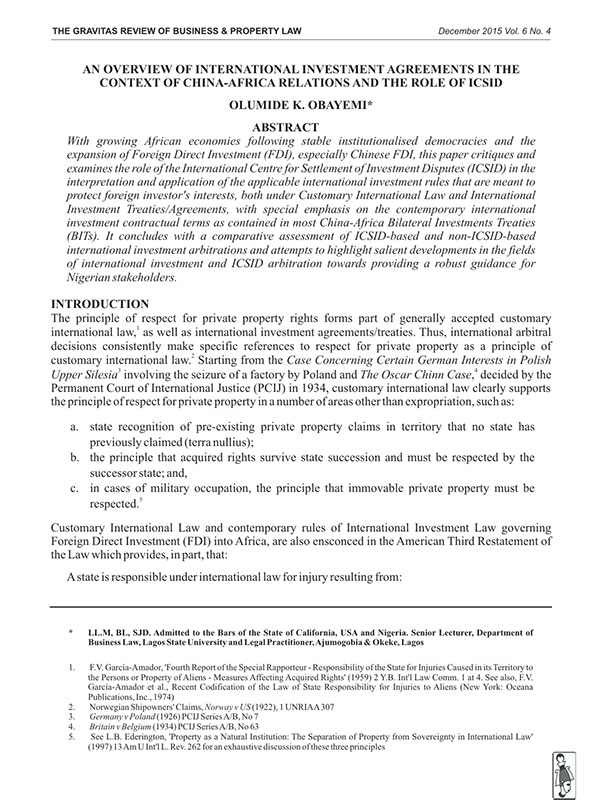
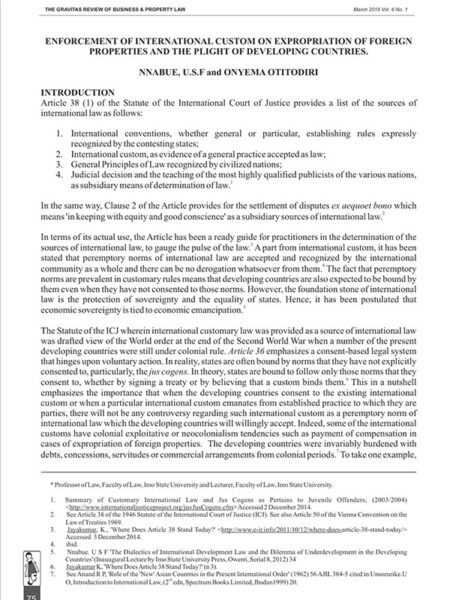
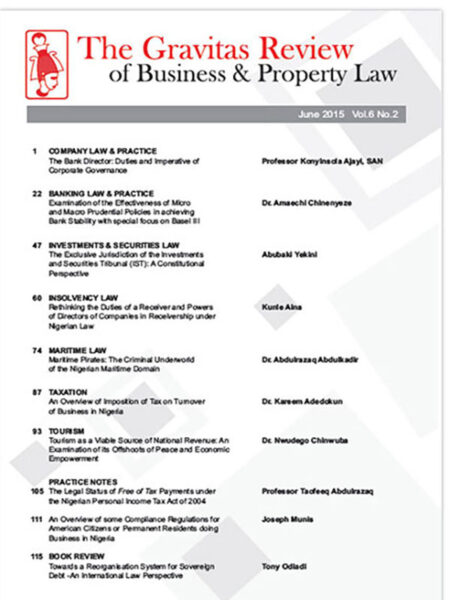
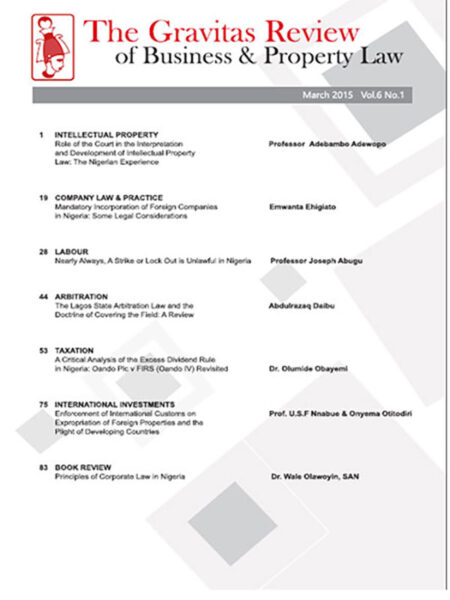
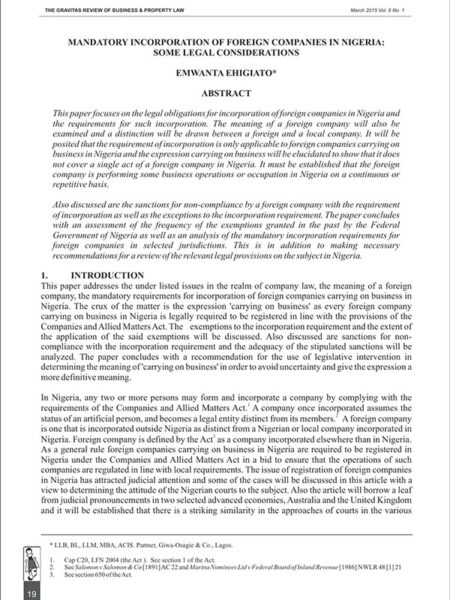


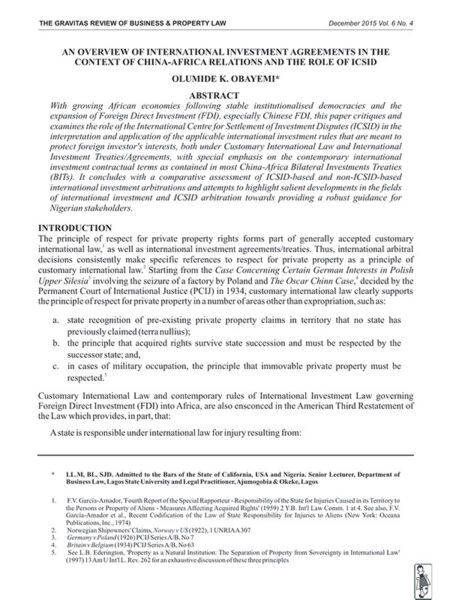
Reviews
There are no reviews yet.